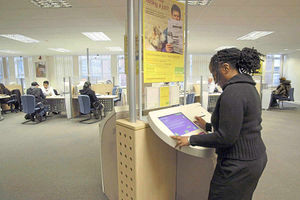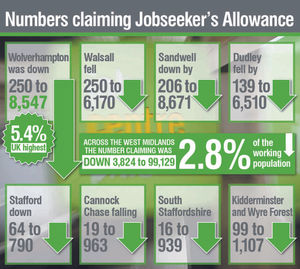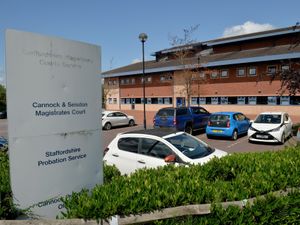Working wonders: Unemployment falls across the West Midlands
Unemployment has fallen across the West Midlands over the last year, new figures show, as efforts accelerate to get the jobless – particularly the young – into work.

The number of people out of work in the three months from June to August fell to 207,000, down by almost 20 per cent on the same time a year ago.
The drop was hailed by Employment Minister Esther McVey, who said: "All of our reforms are focussed on helping people into work. Unemployment in the West Midlands fell by 50,000 in the last year, which shows that the Government's long-term economic plan to help businesses create jobs and get people working again is proving successful.

"Behind today's figures there are countless individual stories of people turning their lives around, of families who are now feeling more secure with a regular wage, and of young people escaping unemployment and building a career.
"We know there is always more to do, which is why it is vital to stick to delivering a plan for full employment that's creating growth and jobs."
The region has also seen job queues shrinking across the Black Country and Staffordshire. Across the West Midlands as a whole the number of people claiming Jobseeker's Allowance fell by 3,824 in September to 99,129.
What else could be done to cut unemployment across the West Midlands? Leave your thoughts below.
The figures differ because not everyone classed as unemployed is eligible to claim Jobseeker's Allowance.
In the Black Country the claimant count fell by 845 between August and last month. There were 29,998 claiming the benefit in Wolverhampton, Dudley, Walsall and Sandwell in September.
But the steady falls across the area mask a more dramatic story: over the last year thousands of local people have come off the claimant count and found work – around 10,000 across the Black Country and nearly 5,000 in Staffordshire. In Wolverhampton the figure is down around 25 per cent, while for young unemployed, aged 18 to 24, the figure is down by nearly a third.

The dramatic drop in Wolverhampton's claimant count over the last year, down by nearly 2,500, reflects work and progress that has been seen across the Black Country. In Walsall it is down by more than 2,700, in Sandwell by more than 3,200 and in Dudley the claimant count has fallen by more than 2,400. Across the West Midlands region as a whole the claimant count has fallen by 43,502 to 99,129 since September last year. Staffordshire has seen its number of claimants fall by 4,800, or more than 40 per cent. The number of people claiming Jobseeker's Allowance in Stafford and Lichfield has virtually halved, while in Cannock Chase and South Staffordshire it has fallen by around 60 per cent.
County councillor Ben Adams, Staffordshire's learning and skills leader, said apprenticeships were playing a big role as employment opportunities continued to grow.
In 2012/13, 9,620 people started an apprenticeship in Staffordshire in compared to 4,570 in 2008/09 – more than double over a five year period.
But there was a word of caution from Ninder Johal, president of the Black Country Chamber of Commerce, as fears grow that the economic slowdown in the eurozone is starting to have an impact on the region's manufacturing .

"This is a signal that the Black Country manufacturing sector needs greater support in terms of growth and markets."
The number of people in work has reached a record 30.7 million following another fall in the jobless total. Unemployment dipped by 154,000 in the quarter to August to 1.97 million, the lowest for eight years. The West Midlands figures come as claimant figures fall nationwide. There was a 18,600 fall in the number of people claiming Jobseeker's Allowance in September to 951,900 – the 23rd consecutive monthly reduction. The UK's unemployment rate has reached a six-year low of six per cent, the Office for National Statistics (ONS) reported. Unemployment has fallen by 538,000 over the past year, the biggest annual reduction since records began in 1972.
But the number of people classed as economically inactive, including students, long-term sick and those retiring early, increased by 113,000 in the latest quarter to more than nine million. The number of self-employed people dropped by 76,000 in the latest three months to 4.5 million, but the total is 279,000 higher than a year ago. Self-employment now makes up almost 15 per cent of total employment in the UK.
The number of employees in part-time jobs has reached a record high of 6.8 million. Youth unemployment – covering 16-to-24-year-olds– fell by 88,000 over the quarter to 733,000, giving a jobless rate among the age group of 16 per cent.





